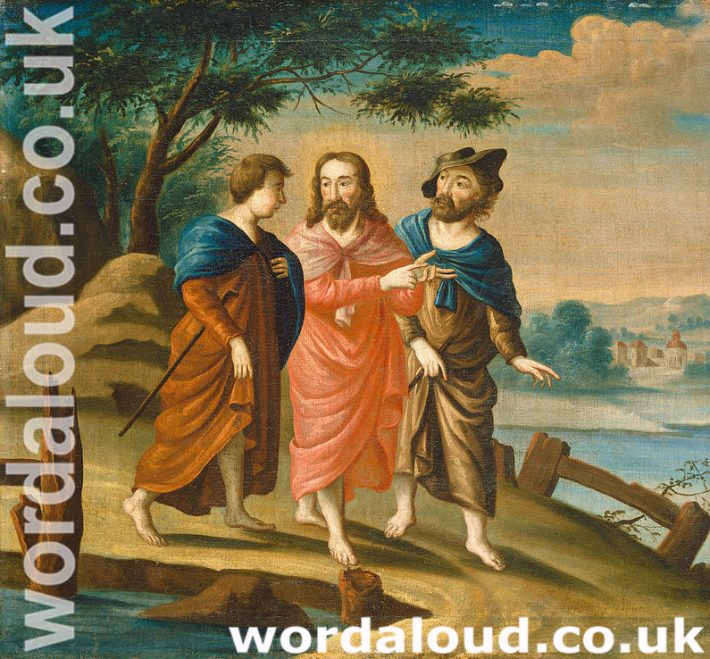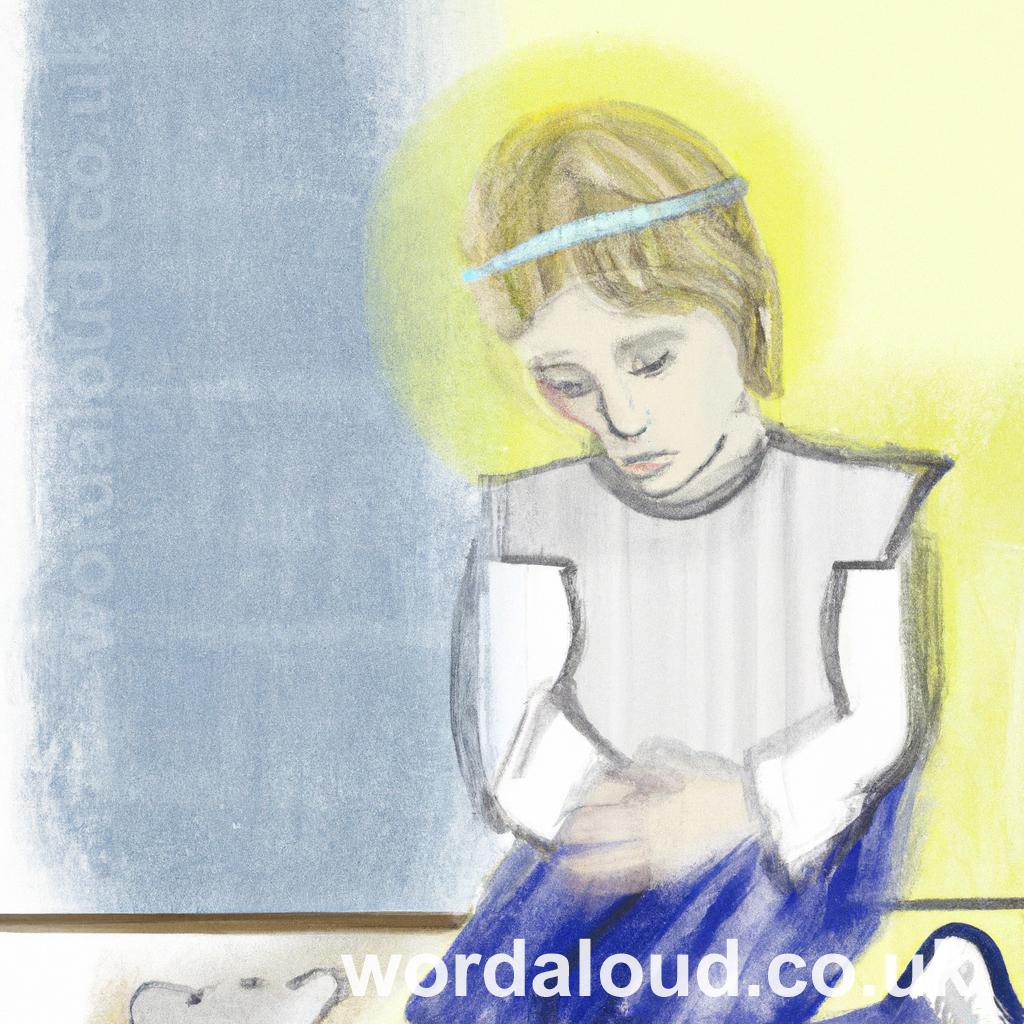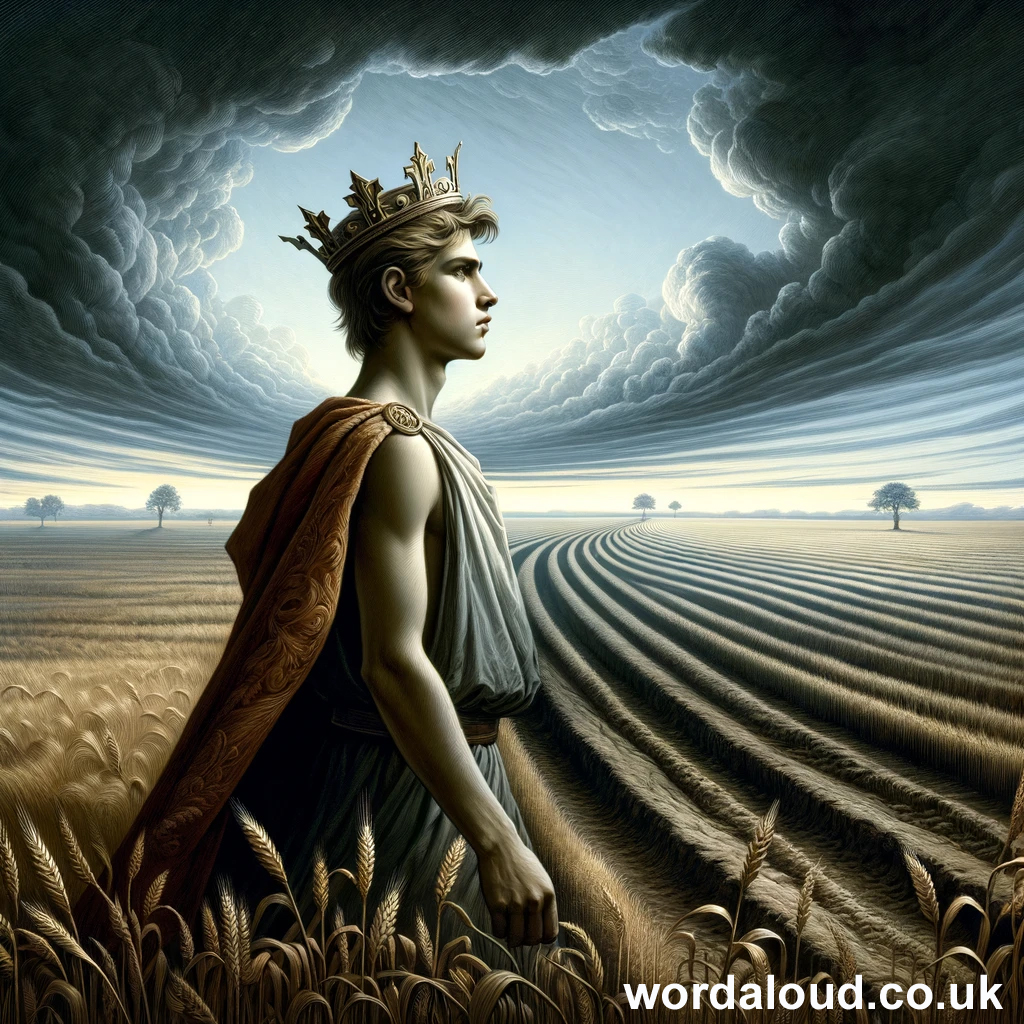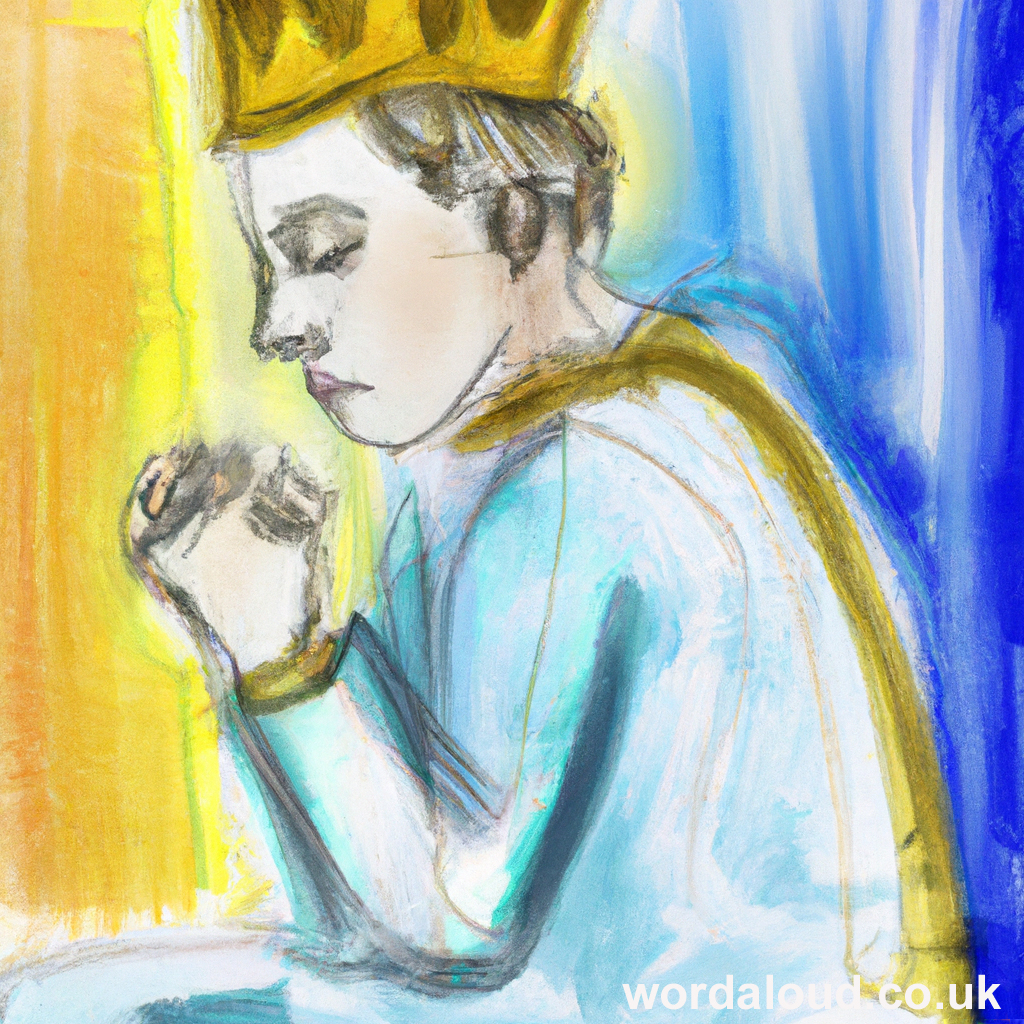Christian Art | Jesus Is With His Disciples | Road To Emmaus | The Church
Office Of Readings | Week 18, Tuesday, Ordinary Time | From The Letter Attributed To Barnabas | New Creation In Jesus Christ
‘The new creation in Jesus Christ.’
The Epistle of Barnabas is an early Christian text that reflects on the meaning of Christ’s suffering, the interpretation of scripture, and the idea of spiritual renewal. This reading describes how the death of Christ leads to the forgiveness of sins and the formation of a new people shaped by that forgiveness.
The passage opens with a reference to the crucifixion. Christ, it says, gave up his flesh to corruption so that his blood might bring the remission of sins. The writer supports this claim by quoting from Isaiah: ‘He was wounded for our transgressions… by his stripes we were healed.’ The passage presents Christ’s suffering as purposeful, connected to healing and transformation.
The author then turns to the interpretation of scripture. He writes that the biblical texts speak both to Israel and to the Christian community. This statement marks a distinction between the old and new covenants, with the author claiming that Christian believers are now the intended audience of the promises once given to Israel. A proverb is introduced—‘Not unjustly are the nets spread out for the birds’—as a warning. If someone has received knowledge of righteousness but turns away from it, the result is judgement.
The next section focuses on the identity of Christ. The author links him directly to the creation story in Genesis, quoting God’s words, ‘Let us make man in our image.’ He presents Christ as the one to whom God was speaking. This suggests that Christ existed before creation and shared in God’s creative work. The idea appears again later, where God is described as forming a new creation through Christ, just as he formed the first.
The reason for the incarnation is then explained. Christ took on flesh in order to overcome death and to make the resurrection known. The author connects this action with earlier promises made to the patriarchs, and with the formation of a new people. Teaching and miracle-working are mentioned as signs of this process. They are not presented as isolated events, but as part of a larger plan to prepare people for renewal.
This renewal is described in terms of a second creation. The author writes that believers have been remade, given new souls, and formed in a different mould. Scriptural passages from Genesis and the prophets are used to support this idea. The well-known verse from Ezekiel—’I will take the stony hearts out of the people and put hearts of flesh into them’—is reinterpreted here to describe the inward change of the believer. The reference to ‘hearts of flesh’ points to a transformation that is both moral and spiritual.
The text then speaks of God dwelling among people. Christ’s presence in the flesh is linked to this dwelling, and the heart is described as a shrine. A psalm is quoted in which the speaker says, ‘I will proclaim you in the assembly of my brethren.’ This is presented as Christ speaking among the community of the faithful.
Finally, the author speaks of entering the ‘good land’, drawing on imagery from the Hebrew Bible. This land is no longer a physical place, but a symbol for the new state of life that believers now occupy. The promises of scripture are seen as fulfilled not through geography, but through the transformation of the people.
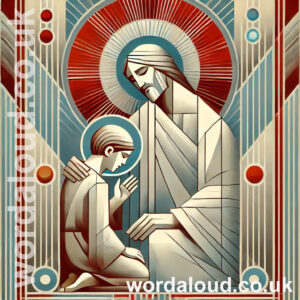
From The Letter Attributed To Barnabas | New Creation In Jesus Christ
The Lord took on the burden of delivering up his flesh to corruption for this reason, that by his sprinkled blood we should receive the remission of sins and be made holy. For the scripture concerning him relates partly to Israel, partly to us, and it speaks thus: He was wounded for our transgressions and bruised for our iniquities, by his stripes we were healed. He was brought as a sheep to the slaughter, and as a lamb dumb before its shearer. Therefore we ought to give great thanks to the Lord that he has given us knowledge of the past, and wisdom for the present, and that we are not wholly without understanding for the future. Scripture also says, Not unjustly are the nets spread out for the birds. This means that if a man has a knowledge of the way of righteousness, but turns aside into the way of darkness, he deserves to perish.
Moreover, my brethren, if the Lord endured to suffer for our life, though he is the Lord of all the world, the one to whom God said before the foundation of the world, Let us make man in our image and likeness, how, then, did he endure to suffer at the hand of man? Learn: the prophets, who received grace and inspiration from him, made prophecies concerning him. He had to take on human flesh if he was to destroy death and make known the Resurrection from the dead; and so he took on this burden, to fulfil the promise made to the patriarchs, to prepare the new people for himself, and to show while he was on earth that he himself will raise the dead and judge the risen. Furthermore, by teaching Israel and working miracles he made known his message and showed his superabundant love.
By the remission of sins he re-made us in a completely different mould, giving us the souls of children, as though he were creating us afresh. It is about us that (as Scripture tells us) God speaks to his Son: Let us make man after our image and likeness, and let them rule the beasts of the earth, and the birds of heaven, and the fishes of the sea. Seeing the beauty of his creation, he adds Increase and multiply and fill the earth. He was speaking to his Son but I will show you that he speaks to us as well. In the last days he made a second creation; and the Lord says, See, I make the last things as the first. This is what the prophet was talking about when he proclaimed, Enter into a land flowing with milk and honey, and rule over it. See then, we have been created afresh, as he says again through another prophet, Behold, I will take the stony hearts out of the people (that is those people who were already being foreseen by the Spirit) and put hearts of flesh into them. He says this because he was going to appear in the flesh himself and dwell among us. So, my brethren, the habitation of our hearts is a shrine consecrated to the Lord. Moreover the Lord says I will proclaim you in the assembly of my brethren, I will sing hymns to you in the midst of the assembled people of God. We, then, are the people he has brought into the good land.
Christian Prayer With Jesus
God,
You have made yourself known through Christ,
who shared our life and entered our death.
You have brought us into a new way of living,
forgiving what is past and renewing what is within.
Shape our hearts to receive what you give.
Help us to walk in the way of light
and to remain faithful to the knowledge we have been given.
Make us steady in hope, patient in change, and clear in purpose.
May our lives reflect your presence
and bear witness to the world you are remaking.
Amen.
Glossary Of Christian Terms
Atonement
The reconciliation between God and humanity, made possible through the life, death, and resurrection of Jesus.
Barnabas, Epistle of
An early Christian text, not included in the New Testament, written around the end of the first century. It interprets Jewish scripture in light of Christ and describes Christian identity in contrast to Judaism.
Christology
The study of the identity and role of Christ, especially his relationship to God and his place in creation and salvation.
Creation (First and Second)
In this text, the ‘first creation’ refers to the making of humanity in Genesis. The ‘second creation’ describes the renewed life of believers brought about through Christ.
Eschatology
Beliefs about the end of the current age, including resurrection, judgement, and the fulfilment of God’s promises.
Exegesis
The interpretation of texts, especially scripture. The Epistle of Barnabas interprets passages from the Hebrew Bible as referring to Christ and the Christian community.
Incarnation
The belief that Christ took on human nature and lived as a human being. The word means ‘becoming flesh.’
Remission of sins
The forgiveness or removal of sins. In this text, it is made possible through the suffering and death of Christ.
Scripture
The collection of sacred writings. In this context, it refers mainly to the Hebrew Bible (Old Testament), which the author of Barnabas reads as pointing to Christ.
Supersessionism
The belief that the Christian Church has replaced Israel as the people of God. This idea is expressed in the Epistle of Barnabas through its interpretation of scripture.
Typology
A way of reading the Bible in which earlier events or figures are seen as foreshadowing later ones, especially Christ.

